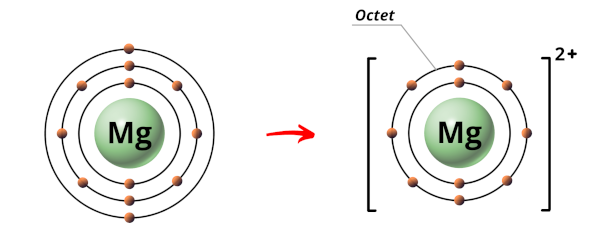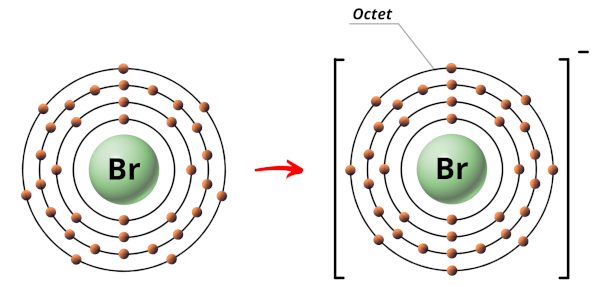
MgBr2 is an ionic compound because when the metal combines with nonmetal, it usually forms an ionic compound. Here, Mg is a metal and Br is a nonmetal. So when they combine, it forms an ionic compound.
Well, now you have got to know that MgBr2 is an ionic compound, but let me explain the in-depth reason why MgBr2 is an ionic compound.
If you are a visual learner like me, then here is a short one minute video for you.
Why is MgBr2 an ionic compound?
As mentioned above, you can simply remember that when the metal combines with nonmetal, the bond between them is an ionic bond.
Here in MgBr2, the Mg atom is a metal and the Br atom is a nonmetal.

Hence the bond between them is an ionic bond.
How does the ionic bond form between Mg and Br?
In MgBr2, there are two atoms;
Mg and Br.
About Magnesium (Mg):
Magnesium atom have 12 electrons.
The electrons arrangement in Magnesium (Mg) is 2, 8, 2.
So the outermost orbit of Magnesium atom has 2 electrons.
Now Magnesium is a metal and the metals are highly electropositive (that means they have the tendency to lose electrons and become positive ions.)

Hence during the chemical reaction, the Magnesium atom will lose 2 electrons to form a stable octet.
About Bromine (Br):
Bromine atom have 35 electrons.
The electrons arrangement in Bromine (Br) is 2, 8, 18, 7.
So the outermost orbit of Bromine atom has 7 electrons.
Now Bromine is a nonmetal and the nonmetals are highly electronegative (that means they have the tendency to gain electrons and become negative ions.)

Hence during the chemical reaction, the Bromine atom will gain 1 electron to form a stable octet.
What happens when Mg and Br combine?
When Mg and Br combine with each other, the electron transfer takes place from Magnesium atom to Bromine atom (i.e from Mg to Br).
In other words, the Magnesium atom (Mg) loses 2 electrons and the Bromine atoms (Br) gains 1-1 electrons.
Due to this, Magnesium becomes a positive ion (Mg2+) and Bromine becomes a negative ion (Br–).
Now because of the positive charge of Magnesium ion and negative charge of Bromine ion, the electrostatic force of attraction is produced between them.

This electrostatic force between Magnesium ion and Bromine ions results in an ionic bond between them.
Hence, MgBr2 is an ionic compound.
I hope you have understood the reason why MgBr2 is an ionic compound.
Check out other compounds to see whether they are ionic or covalent;
Is LiBr Ionic or Covalent?
Is NaOH Ionic or Covalent?
Is HBr Ionic or Covalent?
Is LiF Ionic or Covalent?
Is MgSO4 Ionic or Covalent?
Jay is an educator and has helped more than 100,000 students in their studies by providing simple and easy explanations on different science-related topics. With a desire to make learning accessible for everyone, he founded Knords Learning, an online learning platform that provides students with easily understandable explanations.
Read more about our Editorial process.
